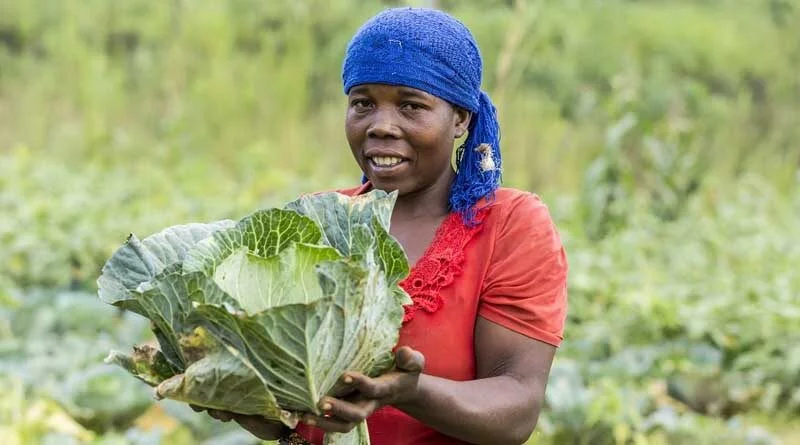CABI is leading on the data organization and management of a new project that will see a digital plant health service established in Malawi to benefit over 100,000 smallholder farmers of maize, tomato, cassava, banana and groundnut crops.
The Malawi Digital Plant Health Service (MaDiPHS) project, funded by the Norwegian Agency for Development Cooperation (Norad), will see the creation of a decision support system which will help farmers incorporate an Integrated Pest Management (IPM) approach to fighting a range of crop pests and diseases.
Agriculture is the biggest industry in Malawi with over 80% of the 19.65 million people engaged in subsistence farming where maize, cassava and sweet potatoes are the main crops. Maize is the most important crop for food security but is blighted by pests including the fall armyworm (Spodoptera frugiperda).
Over one-third of Malawi’s GDP and 90% of its export revenue comes from agriculture and the largest cash crop is tobacco followed by tea and raw sugar.
All crops are affected by erratic rainfall, small farm size, limited use of modern inputs and poor access to markets and, most importantly, problems with pests and diseases that also include the tomato leafminer (Phthorimaea absoluta).
Malawi, like most countries that depend on agriculture, combats crop pests and diseases using pesticides. However, the negative effects they have on the environment and people’s health are known. Countries are now looking for alternative control methods, with IPM being a favoured option.
MaDiPHS will build and expand on the successes achieved by existing digital plant health systems such as PlantVillage Nuru (a pest and disease monitoring tool), the Norwegian Institute of Bioeconomy Research’s VIPS pest prediction platform, a Farmer Interface Application (developed by the International Institute of Tropical Agriculture) and the CABI-led Plantwise programme and Pest Risk Information Service (PRISE).
Henry Mibei, CABI’s Manager, Digital Development, based at CABI’s Centre for Africa in Nairobi, Kenya, said, “While there are existing multiple digital systems available to predict, identify and manage plant pests and diseases, these systems are often aimed at a specific crop or pest.
“Furthermore, despite the recognized benefits associated with aggregating systems (combining data from multiple sources), these systems remain isolated and unlinked.
“This leads to farmers being confused about which system to use, good tools hidden or unnoticed by farmers and extension workers and weaker solutions becoming dominant without providing the best-applied service.
“Establishing a pest and disease decision support system in Malawi will help farmers to take the best decisions within the concept of IPM to mitigate crop losses due to pests and diseases.”
The data assets and outputs of existing digital systems will contribute to a common International Platform which will feed into a national digital client (a locally-adapted digital system with a user interface that meets the local needs).
Malawi will be the pilot country with the newly-established service being a model for other countries and regions to adapt and upscale.
CABI will lead on data organization and management which will focus on enhancing access to data and information resources as part of the MaDiPHS ecosystem. It will be responsible for a range of tasks including the mapping of data ecosystems, identifying key data sets and brokering access to the data held by data holders and ensuring that data is shared with clear and appropriate licences.
The service will be owned and managed by the Malawian government.


